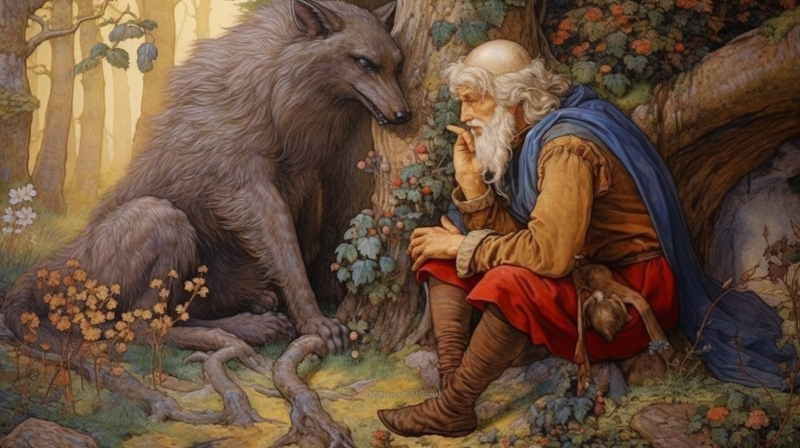The Moral Lessons in Aesop's Fables: Wisdom in Short Tales
In ancient wisdom, where thoughts converge, and ideas intertwine, Aesop's fables emerge as an intellectual tapestry, a grand composition of concise tales that encapsulate profound moral lessons. Within this delicate web of storytelling, Aesop's brilliance lies in weaving together the threads of human experience and nature's tapestry to illuminate timeless truths.
In their brevity and precision, Aesop's fables are a testament to the art of concision, demonstrating that great wisdom need not be burdened by verbosity. Each tale, a microcosm of human existence, bears a profound moral weight, resonating with readers across generations. The power of Aesop's words lies not in their length but in their capacity to distill complex ideas into easily graspable fragments of thought.

Consider the majestic lion, a symbol of strength and majesty. Through his fable, we are reminded that true power is not measured solely by physical prowess but by the nobility of character and the kindness that emanates from within. The lion's lesson transcends the confines of the animal kingdom, imparting a deeper understanding of the nature of power and its relationship to empathy.
In the tortoise's slow and steady journey, we find an embodiment of patience and resilience. Through his plodding steps, we learn that haste and impatience may lead to our downfall, while the ability to endure and persevere ultimately rewards us with victory. It is a lesson of fortitude, reminding us that success is not always granted to the swift but to those with the unwavering determination to overcome obstacles.

The ants, toiling diligently in preparation for the harsh winter ahead, teach us the importance of perseverance and foresight. Their laborious efforts remind us that accumulating small actions performed with purpose and dedication can yield great results. It teaches the value of hard work and the power of diligent planning.
With its cunning and crafty nature, the fox is an exemplary figure. His tales urge us to question appearances and embrace critical thinking. The fox invites us to peer beyond the surface and seek deeper truths, exposing the dangers of gullibility and blind acceptance. Aesop's stories encourage us to cultivate a discerning mind, analyze, and remain vigilant against deception.
Finally, the boastful hare, whose arrogance leads to his undoing, highlights the pitfalls of overconfidence and the virtues of humility. It reminds us that success can be fleeting when accompanied by a complacent attitude, while modesty and respect for others' abilities can lead to lasting achievements.

Our take: Aesop's masterfully crafted and succinctly told fables offer us a treasure trove of wisdom. They remind us that within the confines of brevity lies the power to convey profound ideas and moral teachings. These tales provoke us to reflect upon our actions, strengths, and weaknesses. They beckon us to embrace the good (καλός) in ourselves and strive towards a higher understanding of our place in the world. Through Aesop's enduring words, we are invited to embark on a journey of self-discovery and moral growth, weaving the fabric of our lives with threads of kindness, patience, diligence, discernment, and humility.

Plato Re-Imagined
This course offers 32 comprehensive lectures exploring most of Plato's dialogues. These lectures guide students toward a consilient understanding of the divine—a concept that harmonizes knowledge across disciplines and resonates with secular and religious leaders. As a bonus, Lecture #33 focuses on consilience, demonstrating how different fields of knowledge can converge to form a unified understanding.






